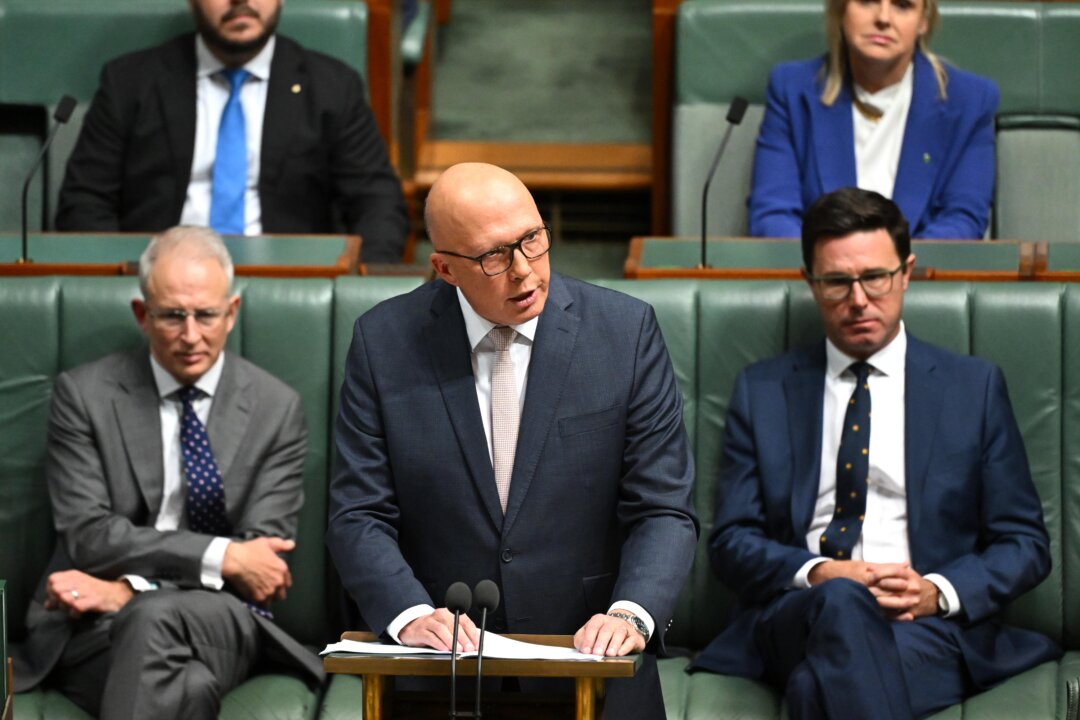Politician accuses West’s ‘global war party’ of pushing the country into conflict with Russia.
Georgia’s parliament has temporarily closed its doors amid increasingly violent demonstrations against proposed legislation that critics say is undemocratic.
“The parliament building … suffered damage after protesters attacked it on May 1,” read a statement released by the legislative assembly.
“Therefore, a scheduled May 2 plenary session will not take place,” it added.
Recent weeks have seen steadily escalating protests against a proposed “foreign agents” law, which was reintroduced last month by the country’s ruling party.
The bill is aimed at combatting perceived foreign influence in the small South Caucasus nation of roughly 3.7 million.
If passed, the law would require entities that receive more than 20 percent of their funding from overseas to register as “organizations pursuing foreign interests.”
Proponents of the bill say the law is needed to protect Georgia from malign foreign influences operating under the guise of “civil society” and “non-governmental organizations.”
The driving force behind the bill is the ruling Georgian Dream party, which came to power in 2020.
According to party leaders, the legislation is meant to safeguard Georgia’s sovereignty and combat “pseudo-liberal values” imposed by foreign entities.
The bill’s domestic opponents, meanwhile, include a coalition of opposition parties, “civil society” groups, and local celebrities.
They say the proposed legislation will serve to suppress free speech and expression and impede Georgia’s chances of joining the EU.
Brussels, which granted Georgia candidate status last year, has said the bill raises “serious concerns” about media freedom, describing the latter as “crucial for the European Union accession process.”
Several leading Western states—including the United States, Britain, and Germany—have called on Georgia to drop the proposed legislation.
The bill’s critics, both domestic and foreign, derisively call it “the Russian law,” comparing it to legislation ostensibly used by Moscow to stifle dissent.
The Kremlin, for its part, denies any association with the bill.
Nevertheless, Russian Foreign Minister Sergey Lavrov recently weighed in on the issue, noting that several Western countries had almost identical laws.
These include the United States, which passed its own Foreign Agents Registration Act, or FARA, which has remained in effect since 1938.
Protesters Clash with Police
On May 1, a second reading of the bill was approved by parliament, which is largely controlled by Georgian Dream and its allies.
Eighty-three lawmakers voted in favor of the legislation—out of 150—while 23 voted against it.
A first reading passed on April 16, which initially triggered the demonstrations.
If the bill survives a third reading later this month, it is set to become law.
Last year, a similar effort by the ruling party to pass the bill was scrapped after several days of demonstrations in Tbilisi, Georgia’s capital.
Approval of the bill’s second reading on May 1 sparked the largest demonstration to date, with tens of thousands of protesters converging on central Tbilisi.
Outside the parliament building, hundreds of demonstrators clashed with police, who responded with teargas and water cannons.
According to the interior ministry, protesters attacked police and attempted to force their way into the building, resulting in scores of arrests.
Georgia’s health ministry later stated that 11 people, including six policemen, had received treatment for injuries.
Sergi Kapanadze, a young demonstrator, described the ongoing protests as a struggle for Georgia’s national survival.
“What are we more afraid of?” he told Reuters. “Being gassed and beaten up, or losing the country?”
Georgian President Salome Zourabichvili, a vocal critic of the ruling party, has slammed the bill and voiced support for the protesters.
“This law will not determine our fate,” Ms. Zourabichvili, whose presidential post is largely ceremonial, said in remarks to local media.
“This fight will take place in parliamentary polls [slated for later this year], after which this law—and many others—will be rescinded,” she added.
Politician Blasts ‘Global War Party’
On April 29, the government staged a large counter-demonstration in support of the legislation.
Although the event reportedly drew tens of thousands, it received considerably less coverage in the Western mainstream media.
Addressing supporters, Georgian Dream founder Bidzina Ivanishvili blasted what he described as undue Western influence on the country.
Mr. Ivanishvili, who served as prime minister from 2012 to 2013, claimed that Georgia had been pushed into conflict with Russia by what he called the West’s “global war party.”
In 2008, Russia won a brief war with Georgia over the small but strategically important regions of Abkhazia and South Ossetia.
Mr. Ivanishvili also accused his opponents of acting on behalf of Western powers, which, he asserted, sought to draw Georgia back into war and use it as “cannon fodder” against Russia.
Meanwhile, police actions against anti-bill protesters—and the legislation itself—have drawn condemnations from U.S. and EU officials.
“We stand with the Georgian people and their right to have their voices heard,” the U.S. State Department declared on May 1.
In a statement, it added: “We condemn the use of violence against peaceful protests.”
The State Department also condemned what it called the “Kremlin-inspired ‘foreign influence’ legislation advanced in Georgia’s parliament.”
“Members of [Georgia’s] ruling party have been clear that the intent of the law is to silence critical voices and destroy Georgia’s vibrant civil society,” the statement read.
The State Department further warned that the ruling party’s “anti-Western rhetoric” risked setting the country “on a precarious trajectory.”
Reuters and the Associated Press contributed to this report.














 English (US) ·
English (US) ·  Turkish (TR) ·
Turkish (TR) ·